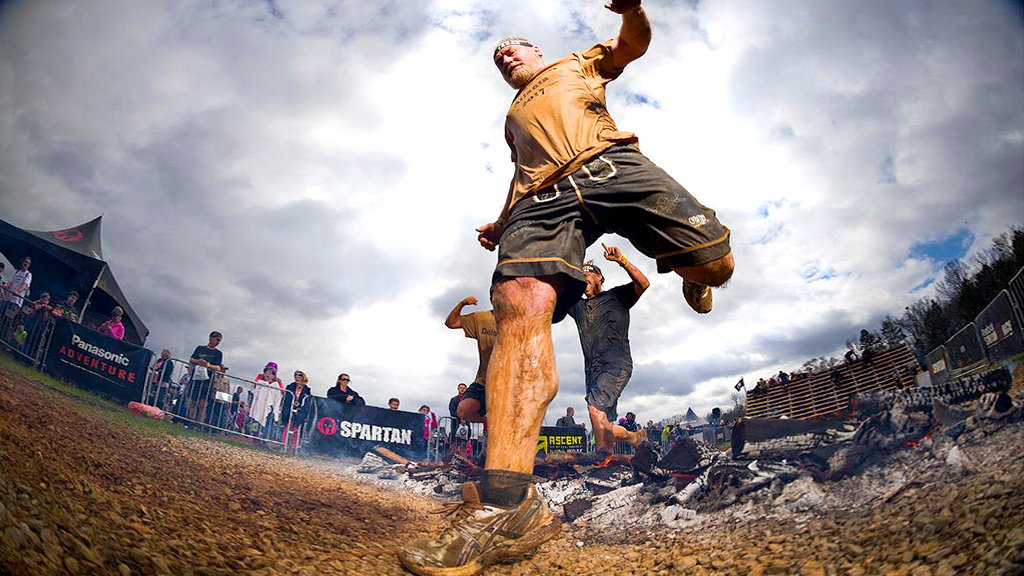 Monte Hitchcock hangs with a younger crowd.
Monte Hitchcock hangs with a younger crowd.
“My training and racing friends are all in their 30s and 40s, and they don’t let me get away with anything,” laughs the 67-year-old triathlete. Although, as he will tell you, “I’m not an athlete, I just like to stay active.”
For Hitchcock, “staying active” is a multidisciplinary routine that consists of swimming, biking, and running for 15-to-20 hours per week, sometimes more. “I’m always preparing for the next event,” he says. Since taking up running at the age of 27, he has completed more than 40 marathons (including Boston). But it wasn’t until he was 52 that he became interested in triathlons. He’s since competed in nearly 70 of them—17 of which were the full, 140.60-mile version.
Think about that: As he grows older, Hitchcock doesn’t just stay active. He actually pushes himself harder.
“In 1985, I wrote in my journal that I would love to someday qualify for Kona,” he says. “I don’t know if I thought I would ever be able to make that dream a reality.” But he did, twice—in 2013 and 2016—while he was well into his 60s.
Hitchcock is accomplishing things that conventional wisdom suggests people his age are incapable of. So is he a genetic mutant, or a symbol of the long-lasting potential in all of us?
Exercise Keeps You Young
“Clearly, there is a difference between ages 27 and 67,” says Steven Bazewicz, CPT, fitness director at Professional Physical Therapy. “But you can undo as much as 20 years of muscle aging with the proper strength and conditioning program.”
In fact, a recent review published in the Scandinavian Journal of Medicine & Science In Sports reveals that 85-year-old adults who strength train regularly have muscle power on par with 65-year-old adults who don’t train. The review also notes that older adults who regularly exercise are, on average, four times stronger than their untrained peers.
That’s not to say that age doesn’t matter. “As we age, specifically as we pass the 50-year marker, we experience noticeable declines in motor neurons [cells that trigger your muscles to contract] and hormone production,” says Bazeiwicz. You can choose to let this fact slow you down, or you can focus instead on what you’re still capable of.
The truth about exercise is that it’s good for you at any age, but it seems to have an increasingly bigger impact as you grow older. A Mayo Clinic study published this year found that when men and women ages 18 to 30 years old performed high-intensity interval training (HIIT) for 12 weeks, they improved their aerobic capacity by 49 percent. Older adults, those aged 65 to 80, improved their scores by a significantly bigger 69 percent. And researchers believe the age-fighting effect may extend to tissues of the heart, lungs, and brain.
“Something that’s really difficult for me right now is that my friends and past workmates are starting to pass away,” Hitchcock says. “I’m still trying to be an influence on those around me to not give up on themselves.” This month, he and his racing buddies (most of whom could be his kids) will travel from Indiana to compete in the IRONMAN Texas North American Championship.
Screw “I’m Too Old for That”
The limitations you accept will come to define you. “If we don’t think we are capable of things because of age, then it’s likely we will fall prey to a self-fulfilling prophecy,” explains Stephen Graef, Ph.D., sports psychologist at The Ohio State University Wexner Medical Center.
So every time you say, “I’m too old for that,” you actually make yourself older. You’re willfully giving away years of health and happiness.
To wit, a Medicine and Science in Sports and Exercise review of 38 studies determined that confidence in your exercise ability (called self-efficacy) is the highest predictor of how much you actually exercise. So believing you can do something actually helps you do it.
“I think it’s important to give ourselves the benefit of the doubt,” Graef says. “Test your limits, embrace the challenge, and grow. You don’t have to be the best, but just be.”
That’s why Hitchcock refuses to “look back” or compare his current race times to those of decades past. “I’m not as fast as I used to be, but I’m still doing it and enjoying it,” he says. And he won’t be stopping anytime soon.
Written for Spartan.com